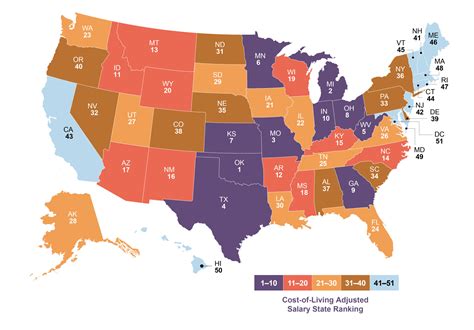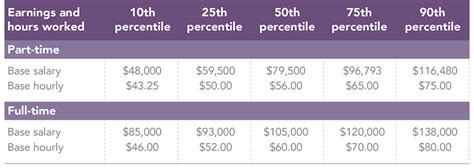For healthcare professionals seeking a dynamic career that combines high-level medical practice with the opportunity to explore new places, the role of a Traveling Physician Assistant (PA) is incredibly compelling. This career path not only offers variety and flexibility but also comes with significant financial rewards. A traveling PA can expect to earn a highly competitive salary, often exceeding $130,000 annually, with top earners in high-demand specialties and locations pushing their income close to $200,000.
This guide will break down everything you need to know about a traveling PA's salary, the factors that shape your earning potential, and the promising future of this profession.
What Does a Travel PA Do?

First, it's important to clarify that a "Travel PA" is a certified Physician Assistant who takes on temporary assignments, known as *locum tenens* work, in various locations. They are not personal assistants who arrange travel.
These medical professionals are the backbone of a flexible healthcare system. They step in to fill critical gaps in hospitals, clinics, and private practices caused by staff shortages, seasonal patient influxes, medical leave, or a need for specialized skills in underserved areas.
Their core responsibilities are the same as any PA:
- Diagnosing and treating illnesses
- Performing physical examinations
- Developing and managing patient treatment plans
- Prescribing medication
- Assisting in surgeries
- Ordering and interpreting diagnostic tests
The key difference is the context. A travel PA must be highly adaptable, able to integrate quickly into new teams, electronic health record (EHR) systems, and diverse patient populations with each new assignment.
Average Travel PA Salary

Physician Assistants are among the highest-paid healthcare professionals, and those who travel often command a premium.
According to the U.S. Bureau of Labor Statistics (BLS), the median annual wage for all Physician Assistants was $130,020 as of May 2023. The lowest 10 percent earned less than $87,500, while the top 10 percent earned more than $170,790.
However, travel PAs working in locum tenens roles frequently earn more than the national median due to the urgent need they fill. Locum tenens compensation is often structured as an hourly rate, which can be significantly higher than a salaried position.
- Typical Salary Range: A travel PA can typically expect to earn between $125,000 and $180,000+ per year.
- Hourly Rates: Reputable salary aggregator Glassdoor reports that the estimated total pay for a Locum Tenens Physician Assistant is around $148,500 per year in the United States, with an average hourly rate often falling between $75 and $110 per hour, depending on the assignment's specifics.
These figures often do not include the additional benefits provided by staffing agencies, such as free housing, travel stipends, and malpractice insurance, which further increase the total value of their compensation package.
Key Factors That Influence Salary

Your specific salary as a travel PA isn't a single number; it's a range influenced by several critical factors. Understanding these variables is key to maximizing your earning potential.
###
Level of Education
To become a PA, a Master’s degree from an accredited PA program is the standard and required level of education. While a Doctor of Medical Science (DMSc) degree exists, it does not currently guarantee a direct or significant salary increase for clinical practice roles. However, a doctorate can open doors to leadership, administrative, or academic positions, which may lead to higher long-term earnings. For a traveling clinical role, the master's degree is the essential credential.
###
Years of Experience
Experience is a primary driver of salary. As you gain more clinical expertise and a proven track record of adapting to new environments, your value to staffing agencies and healthcare facilities increases.
- Entry-Level (0-2 years): New graduates taking travel assignments can expect to earn on the lower end of the travel PA salary spectrum, but still well above the national average for many other professions. They are building confidence and a reputation for reliability.
- Mid-Career (3-9 years): With several years of experience, PAs can command higher rates. They are proficient, require less supervision, and can handle more complex cases, making them ideal candidates for challenging assignments.
- Senior/Experienced (10+ years): PAs with a decade or more of experience, especially those with expertise in a high-demand specialty, are at the peak of their earning potential. They can be selective about assignments and negotiate the most competitive compensation packages. According to Payscale, an experienced Physician Assistant earns an average of 14% more than the overall average.
###
Geographic Location
For a travel PA, location is everything. Salary is dictated by supply and demand. Assignments in less desirable or remote rural locations often pay a significant premium to attract qualified talent. Conversely, assignments in popular metropolitan areas might offer slightly lower rates but provide other lifestyle benefits.
The BLS identifies the following as top-paying states for PAs in general, which often translates to high-paying travel assignments:
1. Washington
2. California
3. Alaska
4. Connecticut
5. Nevada
Assignments in these states, or in any medically underserved area across the country, will typically yield the highest hourly rates.
###
Company Type
Most travel PAs work with a locum tenens staffing agency. These agencies act as the intermediary, connecting PAs with hospitals and clinics. The agency negotiates the contract, handles credentialing, and typically covers travel, housing, and malpractice insurance. Working with a reputable, well-established agency can lead to better assignments and more reliable pay.
A smaller number of travel PAs may work directly for a large hospital system that has its own internal float pool to cover staffing needs across its network of facilities. These positions may offer more stability but potentially less variety in location compared to agency work.
###
Area of Specialization
Specialty is one of the most significant factors in determining your salary. PAs in procedural, high-acuity, or in-demand specialties command the highest pay.
Based on industry reports, such as the American Academy of Physician Associates (AAPA) Salary Report, some of the highest-paying specialties include:
- Dermatology
- Emergency Medicine
- Surgical Subspecialties (e.g., Cardiothoracic, Orthopedic)
- Critical Care/Intensive Care
PAs in specialties like Family Medicine or Pediatrics, while essential, typically earn salaries on the lower end of the PA spectrum. However, a travel PA in family medicine filling a critical need in a rural area can still earn a significant premium over a permanent, salaried role.
Job Outlook

The career outlook for Physician Assistants is exceptionally strong. The BLS projects that employment for PAs will grow by 27 percent from 2022 to 2032, which is much faster than the average for all occupations.
This explosive growth is driven by several factors:
- An aging population requiring more healthcare services.
- A growing emphasis on team-based healthcare models.
- The cost-effectiveness and high quality of care provided by PAs.
This high demand directly translates into abundant opportunities for travel PAs. As healthcare systems continue to face staffing challenges and physician shortages, the need for skilled, flexible PAs to fill temporary roles will only increase.
Conclusion

Choosing a career as a Traveling Physician Assistant is a decision that offers a unique blend of professional challenge, personal freedom, and outstanding financial compensation. With a national median salary well into the six figures and top earners approaching $200,000, the earning potential is undeniable.
For prospective PAs and current professionals considering a change, the key takeaways are:
- High Earning Potential: Travel PAs are well-compensated, often earning a premium over their salaried counterparts.
- Your Value is Variable: Your salary is directly influenced by your experience, specialty, and willingness to work in high-need locations.
- A Secure Future: The job outlook is among the best in the nation, ensuring a steady stream of opportunities for years to come.
By strategically choosing your assignments and building expertise in a high-demand specialty, you can build a rewarding and lucrative career that takes you across the country while making a tangible difference in patients' lives.
